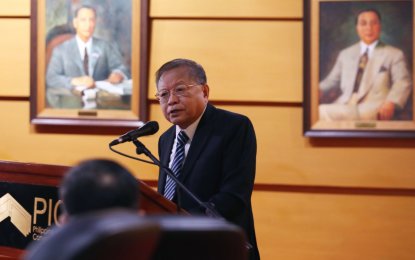Headline
Duterte hands-off on Cha-cha provisions: Puno

“We should be able to hear the voices of the opposition and we should be able to address their concerns,” Puno said. (PNA Photo)
MANILA — Aside from the need to give more attention to the problems in Mindanao, President Rodrigo R. Duterte did not insinuate any provision to the proposal to amend or revise the 1987 Constitution.
This was the assurance given by Reynato Puno, chairperson of the consultative committee (Con-com) to revise the 1987 Constitution after its inaugural session at the Philippine International Convention Center (PICC) in Pasay City.
The Con-com is a 25-member panel led by Puno and formed by Duterte to draft a new constitution that will be submitted to the Congress for approval.
Puno, former Supreme Court chief justice, made this remark when asked if the Con-com would be “independent” of the thrust of the Duterte administration.
He also agreed with the suggestion of committee member and former Senate President Aquilino “Nene” Pimentel Jr. to open the Con-com to ordinary Filipinos as well as oppositor of Charter change to also hear their sentiments.
“We should be able to hear the voices of the opposition and we should be able to address their concerns,” Puno said.
Puno said that the Con-com was open to having well-known oppositor former chief justice Hilario Davide Jr., who during a January 17 Senate hearing, said that he saw absolutely “no need” to amend or revise the constitution.
It may be recalled that Puno disagreed with Davide in the same hearing, stressing the need to “overhaul” the Constitution.
Puno said that the goal to allow the participation of ordinary Filipinos and oppositors was to try to convince them to accept the draft Constitution.
“When we present this draft to the people, we should be able to convince them that this is the best proposition and that we have to take into account even the opposition to this proposed Constitution,” Puno said.
Puno wanted the Con-com en banc sessions to be as open to the public “as much as possible” but noted that the panel has yet to finalize specific rules for their inclusion.
He, meanwhile, expressed hope that with enough educational campaign, ordinary Filipinos will be able to better understand the proposed shift to a federal form of government.
“It’s initially difficult for them (ordinary Filipinos) because we’ve been used to this unitary system but if you come to think of it, the federal system is not that complicated. It’s just breaking the powers of the government and properly distributing the powers,” Puno said.





















